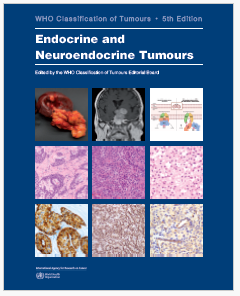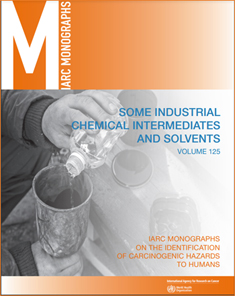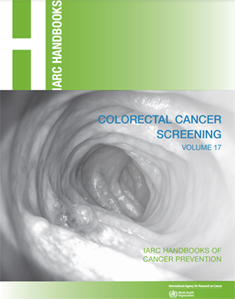About
The Evidence Synthesis and Classification Branch (ESC) produces the WHO Classification of Tumours, the IARC Monographs on the Identification of Carcinogenic Hazards to Humans, and the IARC Handbooks of Cancer Prevention. For each volume, IARC convenes international, interdisciplinary Working Groups of expert scientists to systematically review the pertinent scientific literature and to develop consensus evaluations and classifications. IARC selects these experts based on their knowledge and experience and the absence of real or apparent conflicting interests.
WHO Classification of Tumours series
The WHO Classification of Tumours series provides an evidence-based classification of all cancer types to enable diagnosis; therefore, it is fundamental to the treatment of individual patients with cancer, monitoring of global cancer occurrence, and research into all aspects of cancer causation, prevention, and therapy.
IARC Monographs series
The IARC Monographs are a series of systematic reviews that identify external agents that can cause cancer. These agents may include chemicals, physical and biological agents, complex exposures, occupational circumstances, and other exposures of everyday life. Sometimes called WHO’s “Encyclopaedia of Carcinogens”, the IARC Monographs programme has reviewed more than 1050 agents and identified more than 550 agents as carcinogenic, probably carcinogenic, or possibly carcinogenic to humans (Groups 1, 2A, and 2B).
IARC Handbooks series
The IARC Handbooks series provides evidence-based evaluations of the effectiveness of interventions and strategies in reducing the risk of cancer or mortality from cancer, through primary prevention or secondary prevention. The interventions include chemopreventive agents, behavioural interventions, policies, and cancer screening and early diagnosis.
National and international health agencies can then take action to prevent avoidable exposures to agents that are carcinogenic, probably carcinogenic, and possibly carcinogenic to humans, and to implement cancer-preventive strategies. Individuals, too, can use this information to make better choices that will reduce their risk of cancer.
Funding
Over the past 5 years, ESC has received funding from the United States National Cancer Institute, the United States National Institute of Environmental Health Sciences, the European Union (HORIZON-HLTH-2021-CARE-05 grant), the European Commission’s Directorate-General for Employment, Social Affairs and Inclusion, the French National Cancer Institute (INCa), the American Cancer Society, the Union for International Cancer Control (UICC), the United States Centers for Disease Control and Prevention, the United Kingdom Medical Research Council, the Canadian Partnership Against Cancer, and the World Health Organization Regional Office for Europe.




